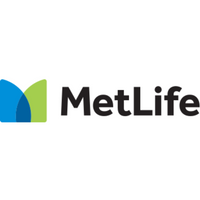Financial wellness: stress, confidence and the key to productivity

As recently as a generation ago, many workers could expect their employers to remove financial uncertainty from their old age with a "final salary" pension scheme. Job security was strong, industries stable, credit was hard to come by (limiting debt) and the state provided for further education and housing.
In 2017, none of these apply. MetLife's latest Employee Benefit Trends Study shows that employees are:
- Concerned about their job security: 54% in 2015 vs 60% in 2017
- Concerned about having financial security for their family in the event of their premature death: 43% in 2015 vs 57% in 2017
- Concerned about financial security for their family if a principal income earner isn't able to work due to disability or serious illness: 47% in 2015 vs 57% in 2017
- Concerned about having too much credit card debt: 27% in 2015 vs 42% in 2017
- Concerned about the affordability of their children's education: 24% in 2015 vs 41% in 2017
The word "security" rings loud and clear here. How can employers help? At a simple level, benefits such as group life and group income protection can help remove significant financial concerns related to negative life events. But successfully addressing employees' financial wellness starts with defining what it means. Then strategies can be built around it.
Defining financial wellness
Someone who is "financially well" is not necessarily rich, debt-free or sitting on a big pension pot. We define them as having:
- Control over day-to-day, month-to-month finances. They know what's coming in and what's going out.
- Capacity to absorb a financial shock - such as a period without work or a family illness.
- Confidence that they're going to meet financial goals - such as buying a house, funding a child's education or retiring on target.
- Choices that allow them to enjoy life as they might reasonably expect - affording a holiday, say, or being able to have a smartphone.
At its most basic, a financial wellness programme should aim to reduce financial stressors, increase financial literacy and improve financial behaviour.
Companies offering a blended approach are likely to see the biggest gains in employee engagement and productivity. The team at the Center for Social Development at Washington University in St. Louis suggest a four-point plan:
1) Traditional interventions
Such as income protection or health cover to reduce financial stress around illness and/or a robust pension scheme with strong incentives (such as matching) for employees to save can address long-term financial worries.
2) Behavioural economics
How to structure choices for people and how we "nudge" them into taking better and more timely financial decisions.
3) Financial education
Including coaching and counselling around basic financial concepts such as compound interest, APRs or household budgeting.
4) Access to finance
Which might include benefits like employee assistance loans.
Whilst generational issues are important, the over-riding objective is to create flexibility within a programme and a foundation of compelling communications that have been designed with specific and measurable goals in mind.
Just because a person is under 30 does not mean they will only want to receive communications through social media and not care about providing for their retirement. A blended approach, with an understanding of what individual drivers are in your business, is most likely to bring the best results.
This article was provided by MetLife.
Supplied by REBA Associate Member, MetLife
At MetLife our aim is to help businesses prepare for the future, perform at their best and protect their people.







